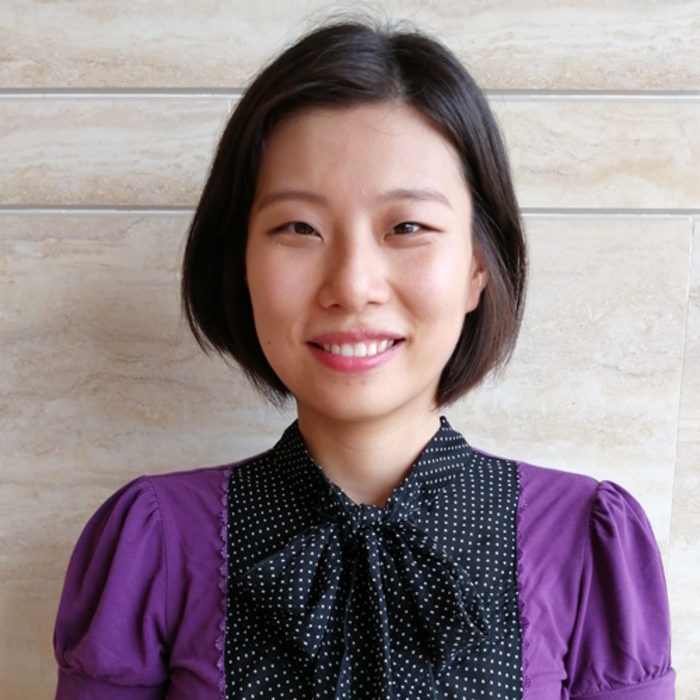Bridging the Gap Between Newcomer Expertise and Organizational Support
Canada relies heavily on the global mobility of people—both in and out of the country. With the combination of millions of baby boomers retiring over the next decade and low fertility rates, immigration, in particular, is critical to sustain and grow the Canadian labour force and economy—newcomers, whether they are international students, refugees, or highly skilled and trained workers, are key to Canada’s growth strategy. More than this perhaps, accepting newcomers into the workforce and society is not just about the numbers, it’s about providing an environment and a support system that allows these individuals to integrate, feel inclusive, and thrive.
Yet, immigration has not always been considered a business problem.

Meet Vivi Zhang, a PhD candidate at the Sprott School, International Business. Vivi is up to the challenge to tackle one of the country’s most pressing problems: To bridge the gap between employing highly skilled newcomers in roles that utilize their full potential and providing the tools, strategies, and knowledge for organizations to tap into newcomer talent. Vivi’s research is not only about identifying challenges facing newcomers to find jobs, but it is about creating a system that fosters the development of individuals based on their full skillset.
“There is a real need to study immigration and connect it to business challenges.”
Notwithstanding the obvious fear and trepidation that comes with new cultural norms, learning a new language, and (often) leaving family and friends behind, some of the real challenges newcomers face when immigrating is securing a productive, fulfilling job, and to feel inclusive and accepted within these environments.
For the last three years, Vivi has worked under the guidance of Luciara Nardon, International Business, to explore newcomers’ experiences and perspectives (e.g., barriers and challenges) when entering the workforce, retaining employment, and securing positions that match their level of expertise. And, as important, Vivi sees that organizations (in our country) will benefit from utilizing the skillset and experience of these individuals.
Vivi’s research over the next few years will focus on the employing organization perspectives, which is less researched and understood. Specifically, her will work to uncover the challenges that organizations face with diversity management, inclusion, and tapping into newcomer talents and skills; ultimately working to identify best practices that organizations can adopt to better employ and retain newcomers to the best of their abilities.
Preliminary findings reveal that many of the limitations to workforce integration, inclusion, and maximizing talent happens because of a communication gap between different government sectors, the business community, and the newcomers themselves. For example, policymakers are not yet utilizing valuable data around individual newcomer experiences or deploying effective support services that are long-term oriented. Moreover, organizations are still working toward understanding an effective framework to institute diversity management and strategies into their business plans.

Vivi’s research provides much needed and highly valuable narratives that have and will continue to shed light on what is really happening in the workforce when it comes to newcomers’ experiences, issues, and barriers; additionally, from the perspectives of employing organizations. Moreover, Vivi comes to her research with a genuine understanding and compassion to her research topics. As a newcomer herself, Vivi came to Canada to pursue a post-graduate education, to experience a new culture, and to develop a professional career. The journey was not easy, and it took an immense amount of bravery and faith in herself. Yet, despite the initial challenges adapting to the new environment, she is now feeling great; pleased with her academic achievement and life in Canada.
Overcoming the challenges at work and personally has given her the confidence to keep learning and discover her life’s path and take on an adventure that she could have never imaged for herself. Vivi is thrilled with her decision to come to Canada and thankful for her this country’s offerings but understands where improvements can be made. Her experience of immigrating has allowed Vivi to fully sympathize with and understand the challenges all newcomers face. And with this, she has found a passion in academia and is here to stay; to create and disseminate knowledge that is critical to newcomers’ integration in Canada. Vivi knows that to bridge the gap and for business to benefit from helping newcomers thrive, her research needs to include multidimensional perspectives that comprises government and organizational limitations and challenges as well. Newcomer integration in the workplace is key, but “Social inclusion beyond integration—that’s the ultimate goal of course.”